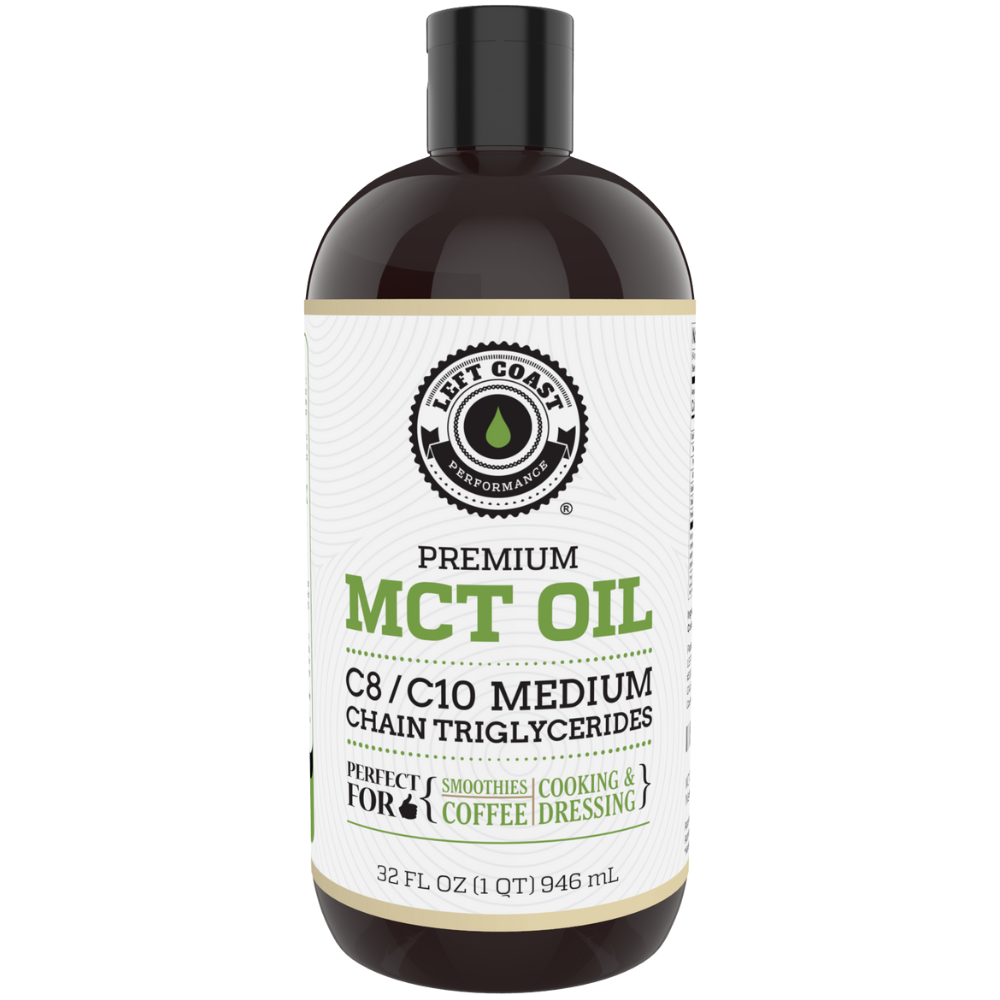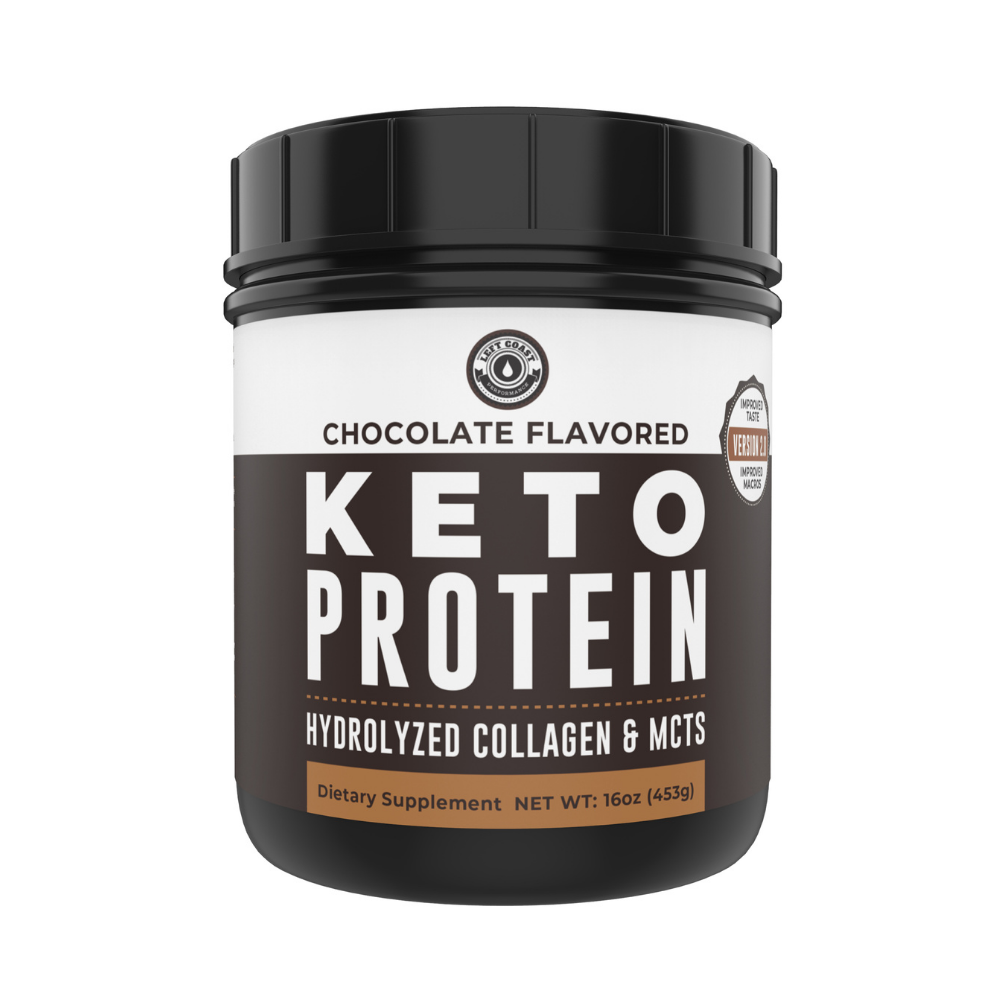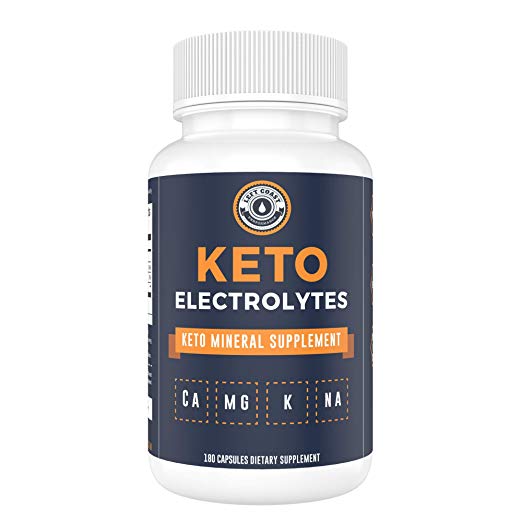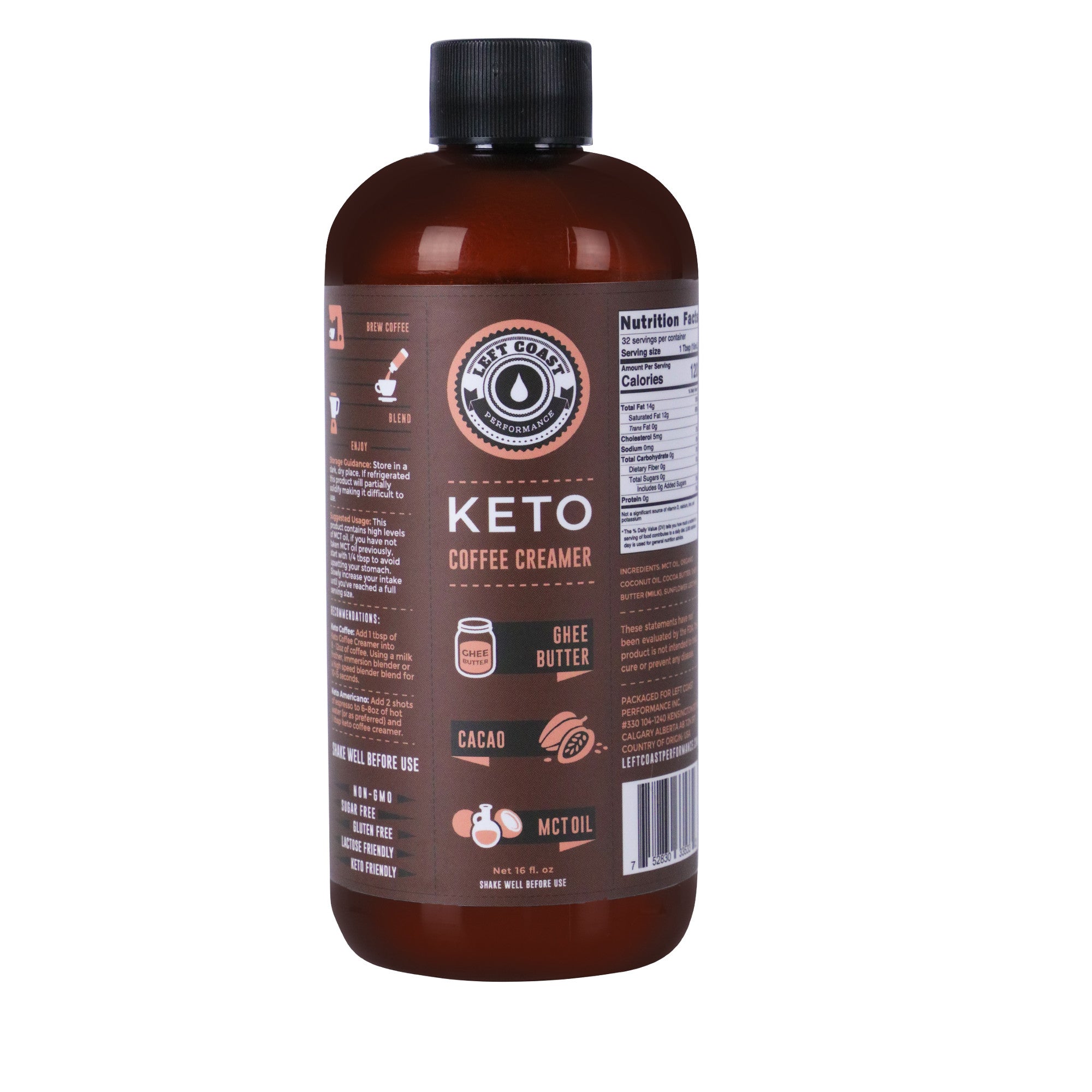Acesulfame Potassium Keto

on September 26, 2019
If you’re a keto dieter with a sweet tooth, it’s important to know your options when it comes to sweeteners. With a sky-high glycemic index that will quickly crash ketosis, regular sugar is off the table. So what other options are there?
In this article, we’ll explore the sweetener acesulfame potassium and tell you whether it’s safe for the keto diet. We’ll also share some other sugar alternatives that are worthwhile to know about as you map your path to keto diet success.
What Is Acesulfame Potassium?
Acesulfame potassium, also known as acesulfame K or ace K, is an artificial sweetener that works by stimulating the taste buds to produce the sensation of sweetness without adding calories. It’s about 200 times sweeter than regular sugar and is marketed under the brand names Sunett and Sweet One. It’s believed that ace K isn't broken down or stored in the body but is absorbed and passed out of the body through urine.
Though ace K is used in thousands of commercial products today, its discovery was actually an accident. In the late 1960’s, scientists Karl Clauss and Harald Jensen were working to develop a new chemical compound. At some point Clauss licked his finger (reportedly to pick up a piece of paper or dab a spot from his sweater) and discovered that his finger tasted sweet. This led to the development of what we now know as ace K as well as several other compounds with varying levels of sweetness.
Ace K is typically found in desserts, candies, beverages, and baked goods. Notably, it’s one of the primary sweeteners in Coke Zero. Acesulfame potassium is often combined with other sweeteners like aspartame and sucralose to mask the bitter aftertaste that can occur when artificial sweeteners are used on their own.
The Food and Drug Administration approved ace K for use as a non-nutritive sweetener in certain categories in 1988. In 2003 it was approved as a general purpose food sweetener and flavor enhancer. According to the FDA, its safety is supported by the results of more than 90 studies.
Because acesulfame potassium has no effect on blood glucose, it’s considered a safe choice of sweetener for people with diabetes. It’s been shown to have no effect on cholesterol or triglycerides. Unlike sugar, it does not contribute to dental problems like tooth decay.
In addition to its use as a food sweetener, ace K is also used in pharmaceuticals like chewable tablets and liquid medications to them more palatable.
Is It Keto?
Good news, keto dieters: you can add this one to your list of keto-approved sweeteners. Ace K contains just 0.5 grams of total carbs per half-gram serving, making it a safe option for enjoying a sweet treat while keeping your body in ketosis.
You might notice that the half-gram serving we mentioned is pretty tiny--about one tenth of a teaspoon. But at 200 times the sweetness of regular sugar, just a dash of acesulfame potassium goes a long way to achieving sweetness.
Because it contains no calories, ace K is a great option for those looking to keep a lid on their caloric intake. However, one potential pitfall keto dieters should beware of when using acesulfame potassium is the temptation to overeat. Even low-carb treats made with this keto sweetener should be consumed in moderation as part of a healthy diet.
Where to Use Acesulfame Potassium
One of acesulfame potassium’s strong points as a keto sweetener is that it’s highly versatile.
It’s stable under high heat and doesn’t break down or lose its sweetness at high temperatures like some other artificial sweeteners. This makes it a great keto sweetener option for baked goods as well as stovetop dishes like puddings and sauces. It doesn’t decompose when stored for long periods of time, giving it and the products it’s used in a long shelf life.
Ace K dissolves in liquids both hot and cold and blends well in smoothies and protein shakes. It also pairs well with other sweeteners like Stevia, erythritol and xylitol. Interestingly, these sweeteners on their own can have an undesirable aftertaste, but when combined they essentially cancel the aftertaste of one another out.
Are There Side Effects?
Like many artificial sweeteners, acesulfame potassium comes with some controversy.
In the 1970’s, a study of ace K use in rats and mice suggested the sweetener could pose a cancer risk. However, modern scientists have pointed out several shortcomings of those studies, most notably with the methods through which they were carried out, the small sample size, and the huge dosage levels used.
More recently, the National Toxicology Program conducted a study in which ace K comprised up to 3% of the total diet of mice (in human terms, this is the would equivalent to consuming more than 1,000 soda cans’ worth of ace K every day). They did not find evidence of an increased cancer risk.
Another study in animals suggested that high levels of ack K consumption led to a spike in insulin levels, but there were shortcomings with this study as well and its results have not been replicated in human subjects.
While some scientists call for further testing of acesulfame potassium, the FDA maintains that acesulfame potassium is safe for daily consumption of up to 15 mg per kilogram of body weight. 15 kilograms equals about 33 pounds.
Other Sugar Alternatives for Keto
Acesulfame potassium is present in thousands of commercially available foods, from salad dressing to ice cream. But if you’re not sold on using it while preparing your own food, there are plenty of other sugar alternatives for keto to choose from.
Erythritol
Like table sugar, erythritol takes a white granular form and has a sweet taste. But unlike sugar, erythritol is not metabolized by the body and doesn’t spike blood glucose levels. Instead, it’s absorbed directly into the bloodstream and excreted through urine within 24 hours of consumption.
Erythritol is a type of carbohydrate known as a sugar alcohol. It’s made from fermenting the naturally occurring sugars in other foods, like fruits. Because of how it passes through the body, it’s one of the only forms of carbs that’s actually acceptable on the keto diet.
Erythritol is naturally found in some foods like watermelon, pears and soy sauce. It’s also commercially manufactured as sweetener that’s acceptable for use by people who need an alternative to sugar, like people with diabetes and followers of the keto diet. It’s approved by the World Health Organization and the FDA.
Erythritol has a negligible number of calories and is slightly less sweet than regular sugar. For this reason, it’s often used to add bulk to higher-intensity sweeteners like Stevia without losing the sugarlike taste and mouthfeel.
Powdered erythritol bakes in a way that’s almost identical to real sugar, making it an ideal option for desserts prepared in the oven. It can also be sprinkled over foods like yogurt and into smoothies. Like other sugar alcohols, erythritol can cause digestive issues like bloating if consumed in excess.
Stevia
Derived from the leaves of the plant species Stevia rebaudiana, Stevia is a food sweetener that has been in use for centuries. Today, it’s a commercially available additive hailed for adding sweetness without calories. It’s about 200 times sweeter than regular sugar and contains a negligible number of carbs.
In addition to its usefulness as a non-nutritive sweetener, some studies suggest that Stevia may have positive health implications. A study published in 2017 concluded that it has potential as a course of treatment for diseases like obesity, diabetes and high blood pressure, though more research is needed.
The component of Stevia that is used for sweetening, steviol glycosides, has received an FDA classification of GRAS, or ‘generally recognized as safe.’ The stevia leaf and crude stevia extracts, however, do not have FDA approval for use in food.
Stevia is a convenient option for keto dieters because it’s widely available in powdered or granular form, oftentimes right alongside regular sugar. It blends well with beverages like coffee and tea and can be used in recipes as a sugar replacement.
As we mentioned above, Stevia is quite potent by volume, so when cooking with it you may need to add a bulking agent like egg whites or plain yogurt.
Swerve
Made from natural ingredients, this sugar alternative combines erythritol with oligosaccharides (starch from root vegetables that’s been broken down) and natural flavors to produce a sweetener that looks and behaves nearly identically to regular sugar. If you’re looking for a true sugar substitute, this is about as close to the real thing as you can get on the keto diet.
Many keto followers rely on Swerve for baking as it measures cup for cup with regular sugar and comes in both granular and powdered form. Dessert connoisseurs will appreciate how it browns and caramelizes like regular sugar, and it doesn’t have the bitter aftertaste we’ve mentioned with other artificial sweeteners.
Choosing the right keto sweetener for you will come down to your taste preferences and dietary needs. The ones we’ve outlined here are a great place to start when cutting out sugar for your new keto lifestyle.
About Left Coast Performance
Switching to a keto lifestyle is a challenge, but it doesn’t have to be restrictive. Left Coast Performance is here to help you tackle your keto journey with confidence, with premium products like collagen, bone broth and MCT oil to support your nutritional needs. All of our products are completely free of artificial colors, flavors, and fillers.
We offer a 100% satisfaction guarantee on all orders and shipping is free every day with no order minimums. For more information on Left Coast Performance and to shop our selection of keto-friendly products, visit www.leftcoastperformance.com. Follow us on Instagram for more helpful keto lifestyle tips.













